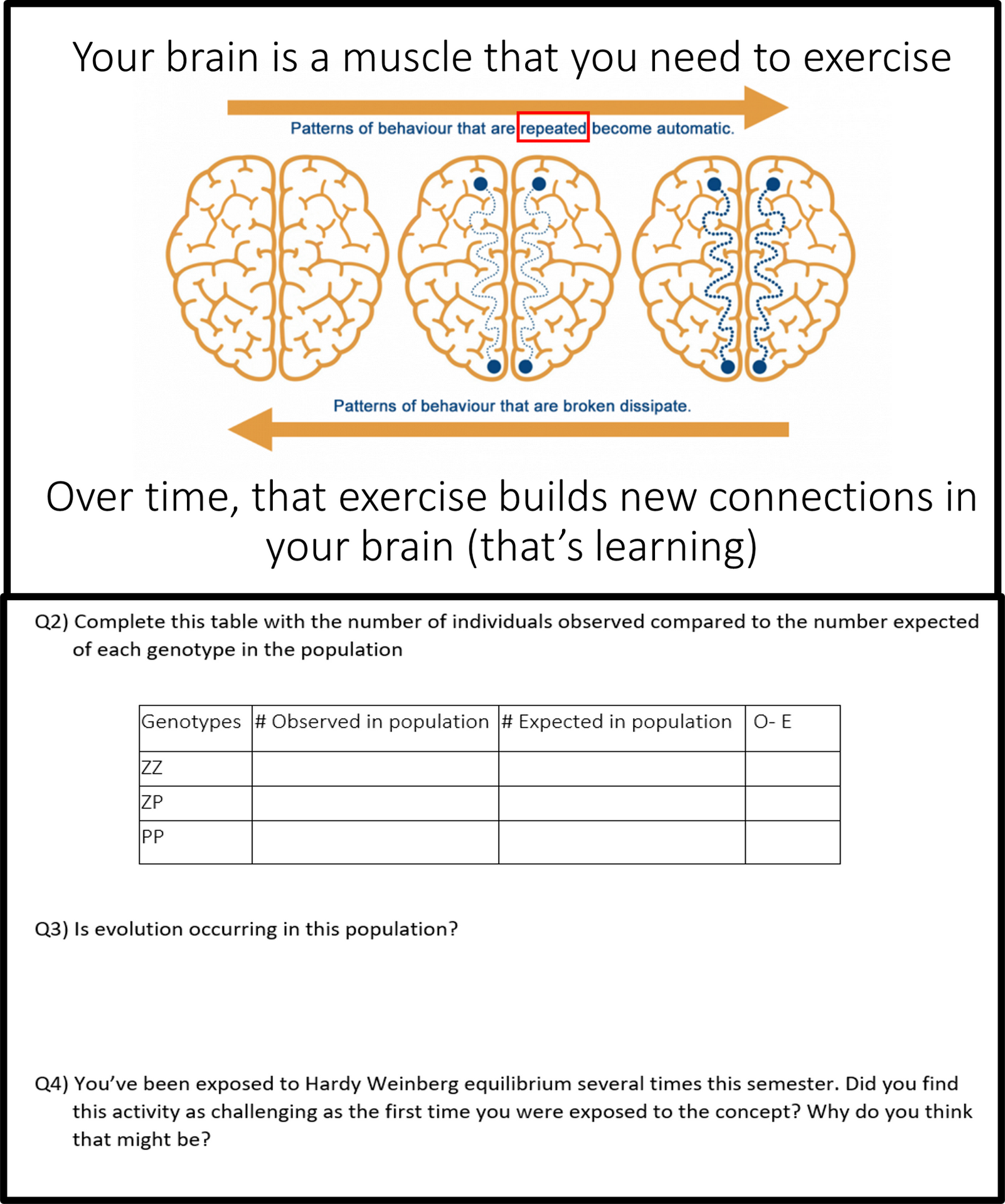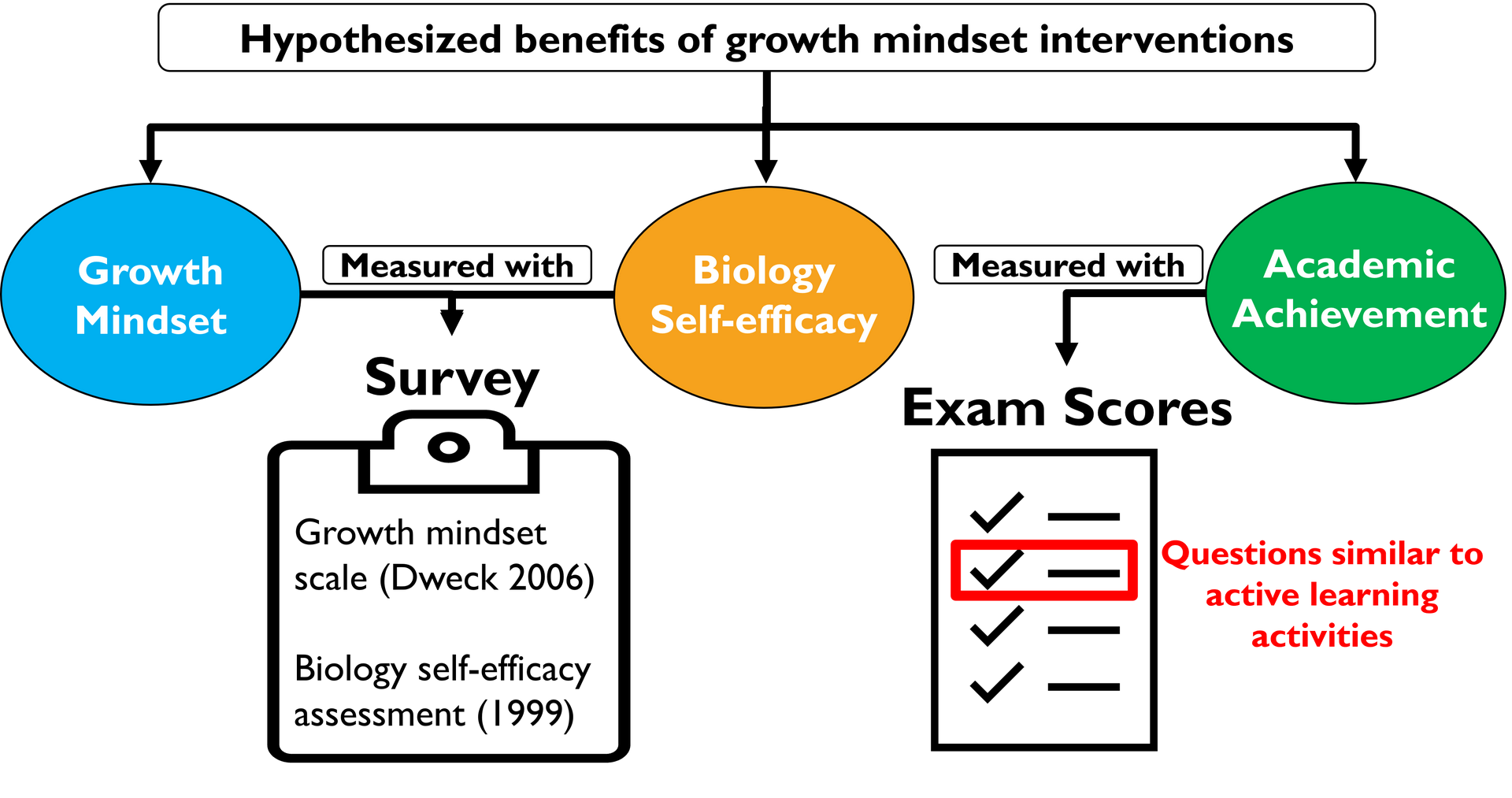Conclusions:
While analyses are still ongoing, preliminary results suggest that implementing low-investment lectures on neuroplasticity can increase students confidence in their ability to succeed in biology courses. This is especially true for students of color and students that struggle academically, who are the most likely to drop out of introductory college courses (Riegle-Crumb et al., 2019; Kiss et al., 2019). However, this did not correspond to increases in exam score grades, which could be interpreted in a few ways. The first is that students may not be good judges of their ability to perform well on exams, especially in their first few years (Besterfield-Sacre et al., 1998). Alternatively, students may be feeling more confident in their ability to perform well at some point in the future, even if that time is not now (that is, they are embracing the concept of neuroplasticity and acknowledging that forming these connections may take time). If the latter is true, studies have shown that students with greater self-efficacy are more likely to persist within a STEM major (Peguero 2015) , graduate (Larson et al., 2015), and pursue post-college employment within the STEM dicipline (Robinson et al., 2022). Thus, the long-term effects of this intervention may take years to play out. Future studies conducting qualitative interviews with students may help gain insight into the mechanisms driving the increase self-efficacy without increases in academic achievement.
Lit cited:
Baldwin, J. A., Ebert‐May, D., & Burns, D. J. (1999). The development of a college biology self‐efficacy instrument for nonmajors. Science education, 83(4), 397-408.
Besterfield-Sacre, M., Amaya, N. Y., Shuman, L. J., Atman, C. J., & Porter, R. L. (1998, November). Understanding student confidence as it relates to first year achievement. In FIE'98. 28th Annual Frontiers in Education Conference. Moving from'Teacher-Centered'to'Learner-Centered'Education. Conference Proceedings (Cat. No. 98CH36214) (Vol. 1, pp. 258-263). IEEE.
Dweck, C., Chiu, C., & Hong, Y. (1995). Implicit theories and their role in judgments and reactions: A word from two perspectives. Psychological Inquiry, 5(4), 267–285.
Kiss, B., Nagy, M., Molontay, R., & Csabay, B. (2019, November). Predicting dropout using high school and first-semester academic achievement measures. In 2019 17th international conference on emerging eLearning technologies and applications (ICETA) (pp. 383-389). IEEE.
Larson, L. M., Pesch, K. M., Surapaneni, S., Bonitz, V. S., Wu, T. F., & Werbel, J. D. (2015). Predicting graduation: The role of mathematics/science self-efficacy. Journal of Career Assessment, 23(3), 399-409.
Riegle-Crumb, C., King, B., & Irizarry, Y. (2019). Does STEM stand out? Examining racial/ethnic gaps in persistence across postsecondary fields. Educational Researcher, 48(3), 133-144.
Robinson, K. A., Perez, T., White-Levatich, A., & Linnenbrink-Garcia, L. (2022). Gender differences and roles of two science self-efficacy beliefs in predicting post-college outcomes. The Journal of Experimental Education, 90(2), 344-363.
Wilson, B. M., Pollock, P. H., & Hamann, K. (2007). Does active learning enhance learner outcomes? Evidence from discussion participation in online classes. Journal of Political Science Education, 3(2), 131-142.




